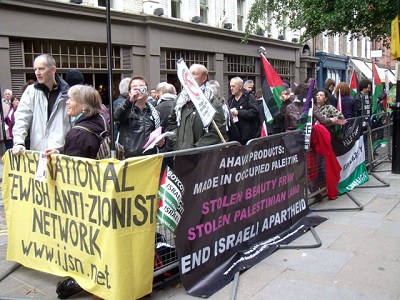
By Susan A. Resheq
Boycott, Divestment and Sanctions’ (BDS) advocates believe that the best strategy to end Israel’s occupation is for Israel to become the target of a global movement – the kind that put an end to apartheid in South Africa. Everyday that Israel violates Palestinian human rights and International Law; the BDS gets stronger as more converts join in the anti-apartheid struggle – some Israeli Jews included.
Anti-BDS activists have articulated many objections to the BDS strategy. They have expressed a great disagreement with BDS’s use of language, which describes Israel as ‘an apartheid state’. ‘Israel is not an apartheid state and cannot be compared to South Africa,’ they argue, and the term ‘apartheid state’ only aims at eliminating Israel from the global arena and displaying hostile behavior against Israel.
However, this is not quite the case. ‘Apartheid’ is not just a term of insult; it is a word with a defined legal meaning. In response to the anti-apartheid struggle and international outrage, the 1965 International Convention for the Elimination of All Forms of Racial Discrimination declared apartheid a crime. This and similar treaties did not limit the term ‘apartheid’ to South Africa, but provided a general definition with delineated components.
According to the 1975 International Convention on the Suppression and Punishment of the Crime of Apartheid, apartheid consists of inhuman acts committed for the purpose of establishing and maintaining domination by one racial group or persons over any other racial group or persons and systematically oppressing them. These acts include denial of life or liberty; the imposition of living conditions designed to cause the destruction of the group in whole or part; legislative or other measures designed to prevent a group from participating in the economic, social, political, or cultural life of the country; measures that divide the population along racial or ethnic lines and create separate reserves or ghettos; exploitation of labor; and the persecution of political position. The Rome Statute of the International Criminal Court reiterated this understanding in 1998.
When the official statements of BDS use the term ‘apartheid’, they are not making a direct analogy with the South African regime. Instead, they use it to reflect a reality in Palestine (where the components of apartheid crime apply) to declare that Israel, under the International Law, must be condemned. In the comparison between apartheid of South Africa and that of Israel, one can observe that both originated through a process of conquest and settlement justified largely on the grounds of religion and ethnic nationalism. Both pursued a legalized, large-scale program of displacing the earlier and indigenous inhabitants from their land.
For decades, the Israeli government and its allies, especially the United States, had succeeded in portraying Israel as a besieged democracy (a villa in the jungle) defending its existence against the threat of outside terrorism. Framing Israel and Palestine as an ‘international conflict’ between two equal sides – Jews and Arabs – suggests that peace can be achieved by guaranteeing Israel’s security and then adjudicating claims over ‘disputed’ territory. Based on these lines, subsequent Israeli governments have claimed that their actions and policies in the occupied territories — including land seizures, mass arrests, forced displacements, settlements, checkpoints, color-coded IDs, settler-only roads, and a Separation Wall that digs deeply into the Palestinian lands— are defensive measures driven by military necessity and the exceptional circumstances of a long-term occupation. In reality, and within the frame of ‘international conflict’, Israel has mastered its apartheid policies against Palestinians.
Israeli apartheid is not the same as South Africa’s – it’s worse. The situation in Palestine is further defined by a complete asymmetry of power where the Israeli government and army exercise extensive control over most aspects of life in the occupied territories (from residency permits to the planting of vegetables), while Palestinians lack meaningful political rights, control over their land, airspace, finances, and contiguous territory. Protests and resistance, including non-violent political activities, are met with aggression, imprisonment, and extrajudicial assassination. Leading members of the South African anti-apartheid struggle, like Nelson Mandela, Archbishop Desmond Tutu, and Jewish activists such as Ronnie Kasrils, have repeatedly affirmed that the conditions in the West Bank and Gaza are “infinitely worse than apartheid.”
Israeli apartheid and the occupation of Palestine are the worst moral scandals of our times – the most dehumanizing ordeals of the century, and the most grotesque acts of cowardice of the last half-century. Thus, when the BDS Movement describes Israel as an ‘apartheid state’, under the norms of the international community and International Law, this is a completely legitimate claim.
– Susan Resheq is a writer and a media and public relations consultant at Al Watan Center – a Hebron-based non-profit organization that aims at empowering the Palestinian community through the development of educational and social responsibility programs. She previously worked as a journalist and editor in dailies in both Jordan and Saudi Arabia. She contributed this article to PalestineChronicle.com. Contact her at: sresheq@gmail.com.





Well said, nice article
Thank you Suzan fir defending our case … Thank you for being a Fighter … thank you for being Suzan the lady from our sacred land Palestine